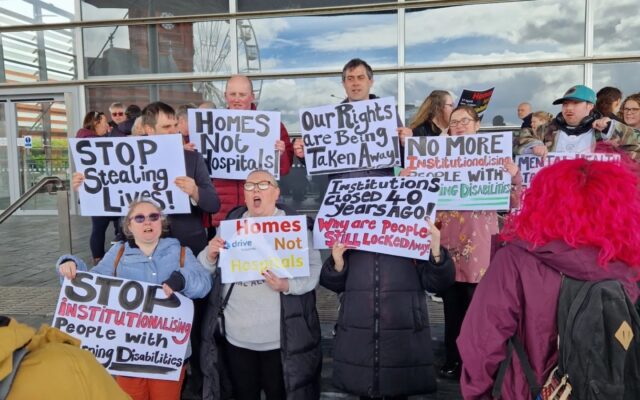Changing the relationship between providers and commissioners
Have you heard the story about the support provider that helped the people they supported become so much more independent that they supported them less and gave the extra money back to the commissioner to invest in other local services?
Or the one about the commissioner who trusted the group of providers he worked with so much that they met together every month to plan local services and work out together who was best to provide them and what they would cost?
I am sure that most would agree that these are the kind of relationships commissioners and providers should have but we rarely hear this kind of thing happening. Both of these stories are true so it does happen and is possible. So why are we not seeing this kind of collaboration between commissioners and providers more often?
Adult conversations
I think the major reasons for this are that first, many commissioners use procurement processes that do not allow for this kind of collaboration and local problem solving. Procurement processes are essentially based on distrust and a need to control what providers do and what ultimately people receive, through a systems-based approach. Systems-based approaches rarely allow for adult conversations and the trust required to figure things out together. Often, the things we figure out together get better results and can even save money. Procurement processes reduce the process down to money and an inflexible criteria that forces providers to play a game that they often don’t want to play.
Second, the business models of many providers are focussed on increasing income and reach rather than enabling the people they support to be less reliant on services where possible and making best use of public money. This naturally builds a distrustful relationship with commissioners who see providers as out for themselves rather than the people they support. Providers and commissioners are rarely able to explore ways that can give providers financial stability whilst giving people with learning disabilities the right outcomes and finding ways that local money can be better used.
Sharing the learning
At H&SA we are exploring and starting to work out ‘consortium’ and ‘alliance’ models that enable local providers and commissioners to come together in this way. It is early days but we will be sharing the learning as we go along. If you are interested, please get in touch.
If some of this feels too hard to contemplate when you work within inflexible and bureaucratic organisations, just remember that things rarely change just because of a system. Things change because of our relationships with each other and a shared passion and commitment for getting things right. But this always needs to be based on trust, so thinking about how you could build trust with a commissioner or provider is the starting point. Trusting relationships are open, honest and vulnerable. Don’t just ‘sell’ yourself, but expose yourself as a human being and organisation and this will give you the foundations you need to build a strong relationship.
I’d love to hear from you about stories of commissioners and providers that you have this kind of trusting relationship with and we’ll share them in coming editions.
Alicia Wood, Chief Executive, Housing & Support Alliance.
The Housing & Support Alliance (H&SA) helps housing & support providers, commissioners and advice and advocacy organisations make good housing and support happen for people with learning disabilities. For more information about H&SA membership call 0300 201 0455 or email kate.newrick@housingandsupport.org.uk




